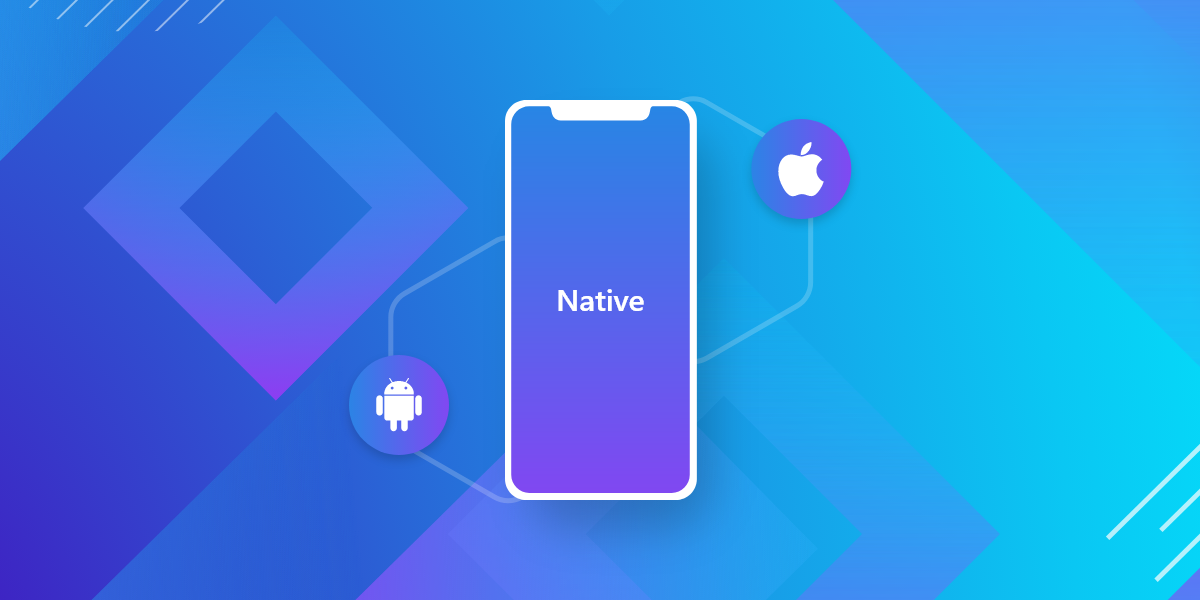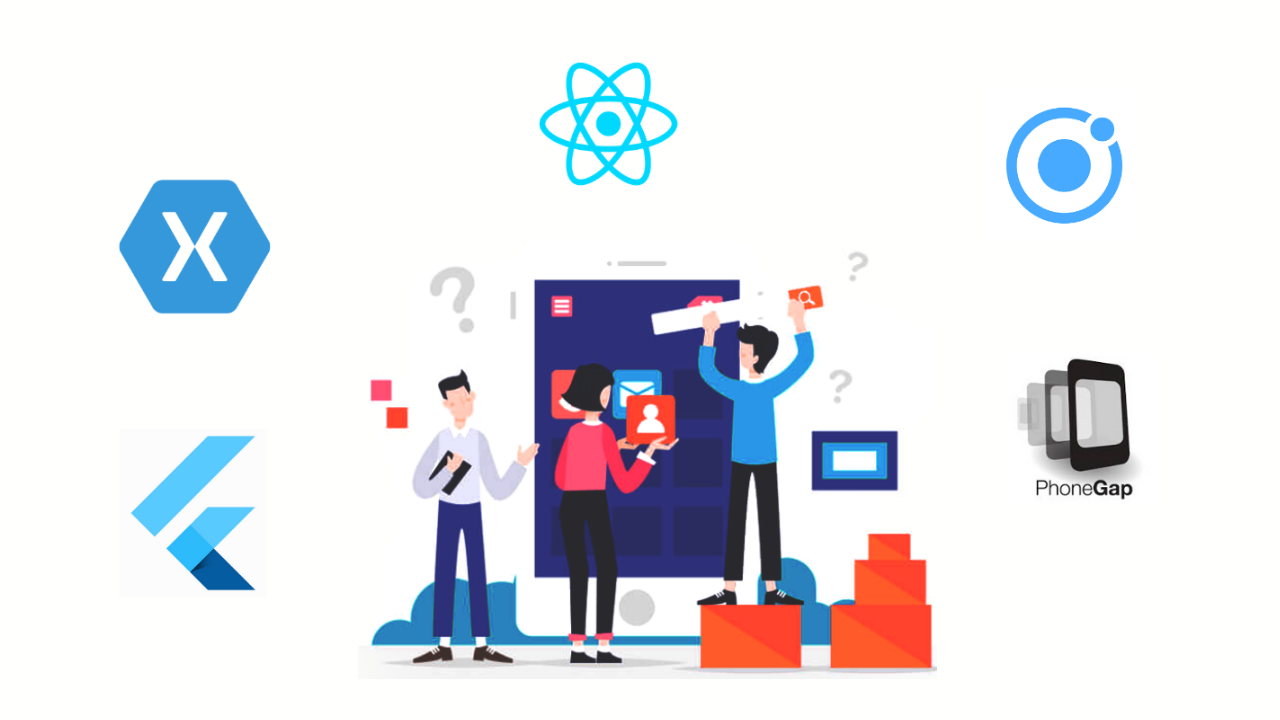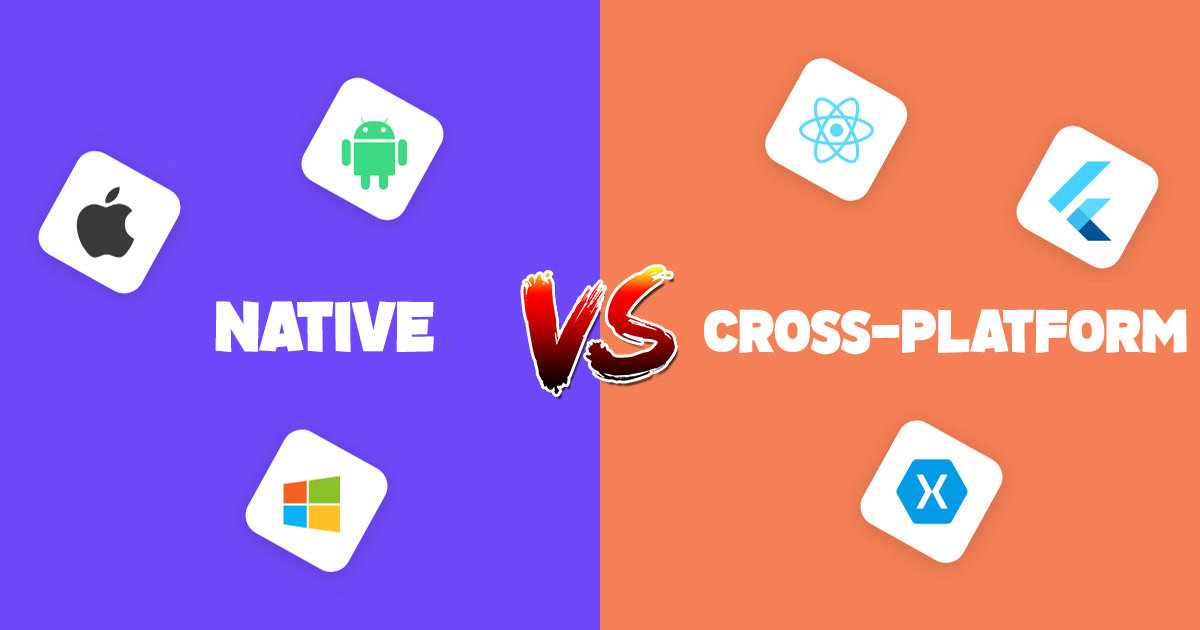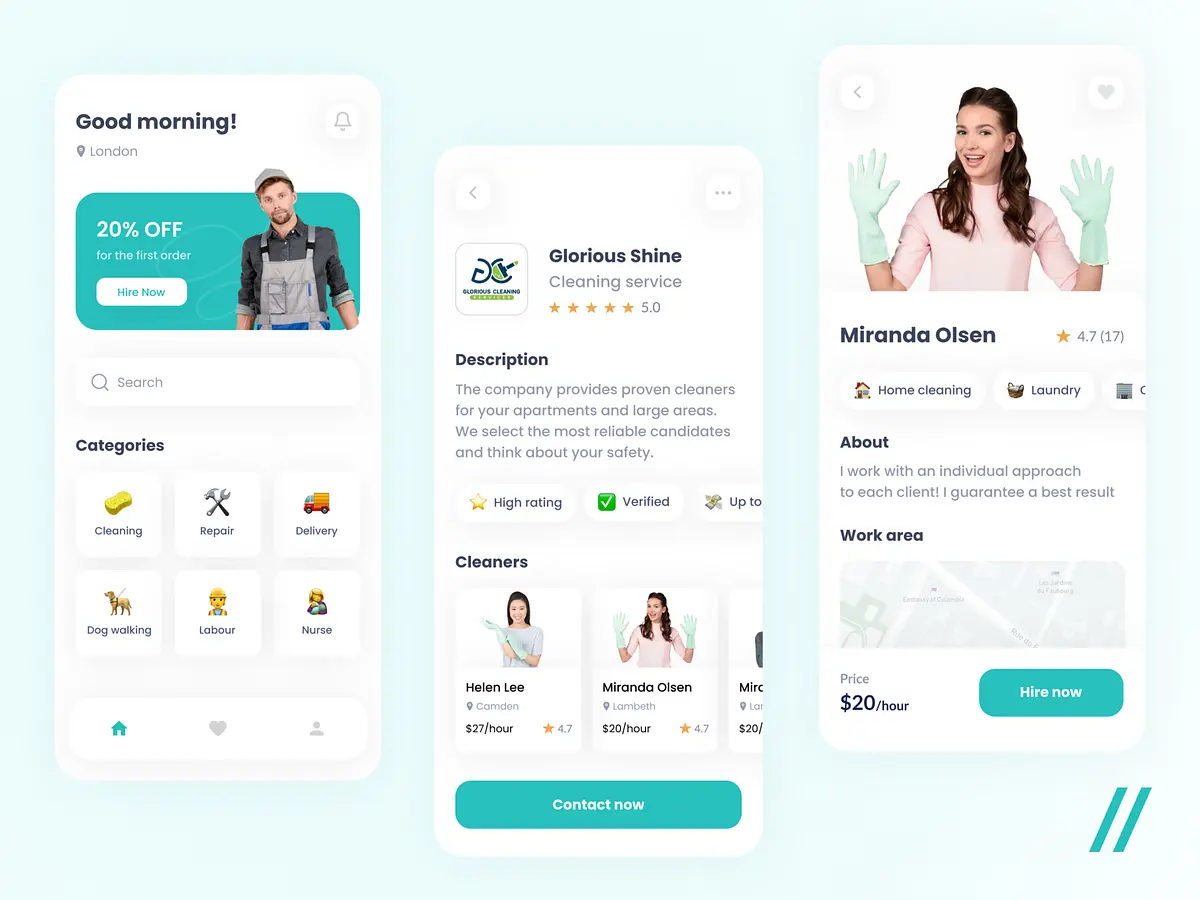Native vs Cross Platform Apps Development: A Comprehensive Comparison


In the ever-evolving landscape of mobile app development, choosing the right path can be a critical decision for businesses and developers. The debate between native vs cross platform development has been long-standing, each offering unique advantages and challenges. This comprehensive comparison will explore their definitions, benefits, challenges, and when to choose one over the other. Whether you seek top-notch performance, cost efficiency, or a balance, we will equip you with the knowledge to chart your course in the app development landscape.
Native app development involves creating mobile applications designed for a particular operating system or platform. In this approach, developers craft these apps from the ground up, utilizing programming languages and tools that are unique to each platform. For instance, when developing native apps for the Android ecosystem, developers primarily use Java or Kotlin. At the same time, for Apple’s iOS environment, they rely on Objective-C and Swift.

This approach offers superior performance, customization, and user experiences. It’s essential for complex apps like inventory management or 3D gaming due to its ability to harness platform-specific capabilities, ensuring optimal performance and functionality.
Top-Notch Performance
Optimal User Experience
Accessibility to Hardware Features
Offline Functionality
Security
Higher Development Costs
Longer Time to Market
No Code Reusability
Thanks to specialized frameworks, Cross-platform app development allows developers to use reusable web-based code across different platforms. These frameworks provide essential tools and components, making it possible to write code once and run it anywhere. While traditionally, cross-platform apps fell short in performance and user experience compared to native apps, they have been gaining ground. Many businesses, including retailers, now prefer cross-platform development for cost savings and more consistent user experiences.

This approach simplifies the app development process, making it easier to reach a broader audience without sacrificing quality or going over budget.
Effective Development Cost
Shorter Time to Market
Code reusability
Performance
Native feature limitations
UI/UX
Want to know more about cross-platform development? See below:
| Aspects | Native Development | Cross-Platform Development |
| Performance | Excellent performance, aim to resource-intensive apps like gaming and multimedia. | Good performance but may face slight trade-offs due to abstraction layers. |
| Development Costs | Higher initial costs and requires hiring platform-specific developers. | Cost-effectiveness with a shared codebase and fewer personnel requirements, significantly cutting development expenses. |
| Time-to-Market | Longer development timelines as separate apps must be built for each platform, delaying market entry. | Faster time-to-market as code can be shared across platforms, enabling simultaneous deployment. Suitable for rapid app launches. |
| User Experience | Offers a seamless and native-like user experience by maximizing platform-specific design guidelines and features. | Provides a consistent but different user experience across platforms, which requires additional effort to match platform-specific design standards. |
| Security | More robust security. | Vary depending on the chosen framework and its support for security practices. |
Selecting between native and cross-platform development depends on your project’s priorities. Native offers top performance and tailored experiences, while cross-platform is cost-effective and faster to market.

Choose native app development when:
Choose native app development when
Native development involves creating separate apps for different platforms, while cross-platform development uses a single codebase for multiple platforms.
The choice depends on your project. Native offers top performance and platform-specific experiences but may cost more. Cross-platform is cost-effective and faster to market but may have slight performance trade-offs.
Cross-platform is a good choice for cost-efficiency and quick deployment. Still, it may not match native’s performance and platform-specific capabilities. It depends on your project’s goals and constraints.
In the dynamic world of mobile app development, choosing between native vs. cross-platform approaches is a pivotal decision. Each method has its merits and challenges, catering to diverse project needs. Native development shines with top performance and tailored experiences but can entail higher costs and time-to-market. On the other hand, cross-platform development offers cost efficiency and speed but may compromise slightly on performance.
The choice hinges on your project’s priorities: opt for native when performance and precision matter most and choose cross-platform for efficiency and a broader reach. Understanding these options empowers you to make an informed choice in the ever-evolving app development landscape.
If you need more clarification about the best approach for your business, feel free to contact us. TECHVIFY Software, a reputable consulting firm with over five years of experience and a team of 300+ experts, is here to assist you. We ensure efficient services, responsive support for your team’s needs, and budget-friendly solutions.
Let’s set up a call to delve deeper into your requirements.


Table of ContentsI. Understanding Native App Development1. Native App Development Definition2. Benefits of Native App Development3. Challenges of Native App DevelopmentII. Exploring Cross-Platform App Development1. Cross-Platform App Development Definition2. Benefits of Cross-Platform App Development3. What Are the Challenges of Cross-Platform App DevelopmentIII. Comparing the Difference Between Native and Cross-Platform DevelopmentIV. Native vs Cross Platform Development: What’s Better?FAQsWhat is the primary difference between native vs. cross-platform development?Is the native approach better than cross-platform?Is cross-platform better?Conclusion Technological advancements are paving new paths for companies across different sectors, and the logistics industry is no exception. According to a survey by Gartner, 87% of…
26 July, 2024

Table of ContentsI. Understanding Native App Development1. Native App Development Definition2. Benefits of Native App Development3. Challenges of Native App DevelopmentII. Exploring Cross-Platform App Development1. Cross-Platform App Development Definition2. Benefits of Cross-Platform App Development3. What Are the Challenges of Cross-Platform App DevelopmentIII. Comparing the Difference Between Native and Cross-Platform DevelopmentIV. Native vs Cross Platform Development: What’s Better?FAQsWhat is the primary difference between native vs. cross-platform development?Is the native approach better than cross-platform?Is cross-platform better?Conclusion The technology sector is advancing at an unprecedented pace, and the HR landscape is evolving right alongside it. To attract top talent, HR professionals and organizations…
25 July, 2024

Table of ContentsI. Understanding Native App Development1. Native App Development Definition2. Benefits of Native App Development3. Challenges of Native App DevelopmentII. Exploring Cross-Platform App Development1. Cross-Platform App Development Definition2. Benefits of Cross-Platform App Development3. What Are the Challenges of Cross-Platform App DevelopmentIII. Comparing the Difference Between Native and Cross-Platform DevelopmentIV. Native vs Cross Platform Development: What’s Better?FAQsWhat is the primary difference between native vs. cross-platform development?Is the native approach better than cross-platform?Is cross-platform better?Conclusion Customized software plays a major role in managing various tasks within the telecom industry. It is essential for allocating numbers to subscribers and managing networks through…
24 July, 2024


Thank you for your interest in TECHVIFY Software.
Speed-up your projects with high skilled software engineers and developers.
By clicking the Submit button, I confirm that I have read and agree to our Privacy Policy